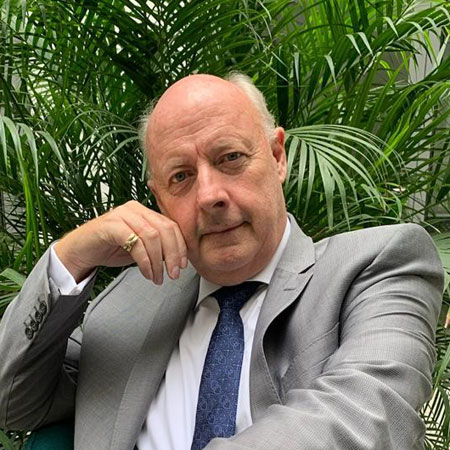Freddy Svane, Denmark’s Ambassador to India
The planet will survive without the humans, but the humans can’t survive without the planet: Freddy Svane, Danish Ambassador in India
The India-Denmark Green Strategic Partnership for green energy transition is based on the 5S frame of skills, scale, speed, scope and sustainability.

About The Episode
Welcome to the full Episode 4 of Sustainability Karma, India’s first and only talk show on sustainability on All India Radio.
In this episode of Sustainability Karma, Freddy Svane, Danish Ambassador in India, talks about how India and Denmark are combatting climate crises and promoting sustainability through their collaboration spanning renewable energy, water management and private sector engagement to achieve shared goals.
Saying that India and Denmark have forged a robust partnership aimed at tackling climate change and promoting sustainability, Freddy Svane underlines that the Green Strategic Partnership is rooted in five key principles: Scale, Skills, Scope, Speed, and Sustainability.
The ambassador elaborates that Scale pertains not only to India’s vast population but also to its capabilities and capacities, while Skills encompass Denmark’s expertise in green technologies and practices. Scope emphasises the need for initiatives to transcend national boundaries, and Speed underscores the urgency of action in achieving Sustainable Development Goals by 2030. Sustainability, a longstanding focus of Indian Prime Minister Narendra Modi, highlights the shared vision for a greener planet, cultivated since Denmark and India embarked on their collaborative journey.
Within this partnership, both countries prioritize individual responsibility and mass mobilization as crucial drivers of change. India’s ambitious renewable energy targets and initiatives like the Mission for Life underscore the importance of collective action and personal accountability in combating climate change.
Furthermore, collaboration between Danish and Indian companies in sectors such as energy and water exemplifies how private sector engagement can advance sustainability goals, elaborates the ambassador.
In energy, joint efforts include the establishment of a centre of excellence for offshore wind and the pursuit of offshore wind projects in India. Quoting a few examples, Freddy Svane says that Danish companies like Vestas, Grundfos and Danfoss are pivotal players, contributing expertise and technology to advance innovation and sustainability.
The partnership between India and Denmark exemplifies the potential of international cooperation in addressing climate change. By leveraging each other’s strengths and fostering collaboration across sectors, they exemplify a proactive approach to global sustainability, demonstrating that collective action is essential to addressing the defining challenge of our time.
However, challenges persist, including perceptions that European countries prioritise technology sales over promoting technology transfer and innovation. Denmark aims to dispel this notion by aligning its investments in India with local priorities, emphasising technology transfer, investment, skilling, and job creation. This approach recognizes India’s status as both a burgeoning market and a key player in global sustainability efforts, the ambassador emphasises.
Looking ahead, Denmark looks forward to breakthroughs in climate technology, finance, and governance, stressing the importance of collective action and India’s pivotal role in global climate negotiations.
Talking about India’s role in global development, he says that India’s influence is amplified by its vast population, making it a linchpin in global efforts to address climate change.
Despite geopolitical tensions and conflicts, Freddy Svane adds that both nations advocate for unity and collective action to safeguard the planet. India’s call for global solidarity during its G20 presidency underscores the interconnectedness of humanity and the imperative of collective responsibility in securing a sustainable future for all.

